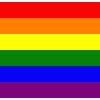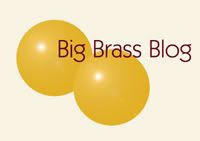Craig Crawford‘s 1600: Standing Behind the Troops
Dec. 5, 2005 – Page 3278
Wartime presidents have every right to stand before the troops when they want to boost the nation’s will to win. Images of men and women in uniform cheering their commander in chief excite the military and give more than a few civilians a lump in the throat.
But
Perhaps the most ridiculous — and alarming — reason for not doing so was voiced by a loyal friend of the Bush family, former Sen. Alan K. Simpson. “Because this is about war, and regular civilians don’t understand war,” the Wyoming Republican told MSNBC’s Chris Matthews after Bush’s speech at the Naval Academy last week.
The Bush camp has other, more sophisticated, reasons for avoiding civilians. For starters, administration officials do not want to acknowledge that regular Americans are anything but wildly supportive. Chancing the spectacle of a heckler, or even a respectful challenge from an audience member, might dispel such a notion.
Bush’s unveiling of his “Strategy for Victory” in Annapolis included several remarks intended to set the story line that only Washington knuckleheads oppose him. “Decisions about troop levels will be driven by the conditions on the ground in Iraq and the good judgment of our commanders — not by artificial timetables set by politicians in Washington,” he declared.
Several times the president strove to label criticism as nothing but a Washington parlor game. “When you’re risking your life to accomplish a mission, the last thing you want to hear is that mission being questioned in our nation’s capital,” he told the midshipmen.
“There may be a lot of heated rhetoric in Washington, D.C.,” he observed. “We should not fear the debate in Washington.”
Again and again, Bush sought to create the impression that no one outside the Beltway questions his wisdom. Never mind that most Americans — not just Washington politicians — are telling pollsters they have little faith in the president’s handling of the war. And they want to know when the troops are coming home.
No matter what the risks might be, Bush must regain the personal bond he once had with Americans who now see him as an imperious boss avoiding his workers.
Or maybe he is so sure of his path in Iraq that he does not care. That was the blunt-spoken Simpson’s take on “Hardball” last week: “He’s sticking his face right in the face of the American people, saying, ‘You may not like this. We’re here, and by God, we’re going to stay the course, and we’re going to be here as long as I’m your commander in chief and, in essence, you can stuff it if you don’t like it.’ ”
If that is the president’s attitude, maybe he should avoid civilians.
There is another reason White House handlers fear putting Bush in an unstructured setting with civilians. They have no idea what he might say. And his unscripted moments are often his worst. Just after Hurricane Katrina, he famously praised embattled FEMA chief Michael Brown, saying, “Brownie, you’re doing a heck of job” — even though days later Brown was shown the door.
When on the road trying to promote his plan for overhauling Social Security, Bush joked about retirees having a “faulty memory.”
Also, Bush gets testy when challenged. The last thing the White House wants is for the president to show his anger at an unruly citizen, as he did during his 2004 presidential debates against
If a free-for-all with an untamed audience makes the Bush team nervous, they could at least have him address the nation from the Oval Office. But White House advisers have concluded that past uses of that venue fell flat.
Bush must find some way to acknowledge rising dissent around the country if he is to have any chance of controlling it. But his one reference to the public in the Naval Academy speech was to tell the cadets that “the American people stand behind you.”
That is a safe assessment, to be sure. Even the most emphatic anti-war critics support the troops. The question is whether the American people now stand behind President Bush.
It appears they do not, and it is time for him to stand before average Americans, take their questions, hear their concerns and make his case directly to them. Hiding behind props and soldiers only reinforces their feeling that he is not listening to them.
Contributing Editor Craig Crawford is a news analyst for MSNBC, CNBC and “The Early Show” on CBS. He can be reached at ccrawford@cq.com."






